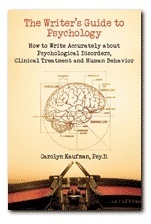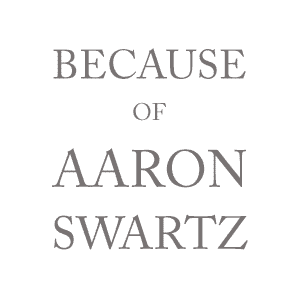Matthew Wayne Selznick's Blog, page 12
January 30, 2013
Join Me As I Finish Writing A Book
On Thursday, January 31st, 2013 at 5 PM PST, I hope you’ll join me for a very special WriterCam wherein I finish writing a book: the first draft of “Pilgrimage — A Novel of the Sovereign Era.”
If you’ve never seen a WriterCam, it’s simply a live stream of me writing, faciliatated by Google Hangouts and simul-streamed on YouTube. There’s no sound or interaction with me during most WriterCams (I’m busy writing.) Some people have said it helps inspire them to write as well. Other people say I make funny faces (I do.) My girlfriend thinks I look handsome (I’m glad she thinks so.)
This next WriterCam will be special. I’ll write the sixty fifth and final scene of “Pilgrimage” while the camera is streaming and the world (and you!) are watching.
How often does anyone get to be a fly on the wall at the moment an author finishes writing a book? On Thursday, you can be there.
A chat window is provided on the Google Hangouts page, so folks can chat while I’m laying down the last thousand or so words. I won’t see what you’re talking about, though, so don’t bother trying to get my attention! My focus will be on my writing.
When I finally type “The End,” I’ll turn on the microphone and the interactive features of Google Hangouts and, well, hang out with you for a little while, answer any questions you might have… whatever! I might drink a beer to celebrate. It’s an idea.
How You Can Be There When I Finish Pilgrimage
Anyone who is in my Google Plus circles will receive an invite to the event a few minutes before it starts. If you haven’t already added me to your circles, please do so before Thursday at 4 PM PST. I’ll be sure to add you to my circles so you receive the invitation.
Even if you aren’t on Google Plus, you’ll be able to watch the stream on YouTube, but there’s no chat window and no sharing of the screen during the “after party.” Keep an eye on my Twitter stream and my Facebook page for a link to the stream on YouTube.
For the most fun, though, I hope you’ll be part of the audience in the Google Hangouts, either in the chat or on camera.
See You There!
Come join me on Thursday, January 31st as I finish writing a book!
This is a post from Matthew Wayne Selznick. Thanks for reading Join Me As I Finish Writing A Book -- please click through and comment, and share with everyone you know!






January 25, 2013
A Lifetime of Emotion In Seven Minutes
This remarkable clip is going around the web as I write this, but on the off chance you haven’t seen it, please watch this performance of “Stairway to Heaven” by Jason Bonham and Ann and Nancy Wilson of Heart at the 35th Kennedy Center Honors ceremony… and pay close attention to the faces of Robert Plant, John Paul Jones and Jimmy Page as they watch an inspired and loving rendition of their signature song:
All done drying your eyes, gentle reader?
Even if, like me, you’re mostly burned out on the song from hearing it every twenty minutes on FM radio growing up in the seventies and eighties, no one can deny that the song is one of the most important pieces of twentieth century music.
But for those three surviving members of Led Zeppelin, it seems to me that watching the son of their departed friend and bandmate perform the song with two super-fan sisters in front of the President and First Lady of the United States and an audience of creative royalty… it seems to me that song turned into a time machine.
I haven’t lived long enough to have forty years of creative endeavors to look back on, and my experiences of musical collaboration certainly can’t match the twelve intense years of being in Led Zeppelin, or the nearly fifty years of friendship enjoyed by the three surviving members of the band.
Watching them accept the honors presented by the collected creators at the Kennedy Center, though, I did find myself reflecting on just what a powerful, privileged thing it is to be able to make things in these times.
I may never create a thing worthy of a legacy like “Stairway to Heaven.” Then again, for all I know, I may have already done so. Creators don’t usually get a say in the matter, after all.
Either way… I’m very appreciative of the fact that I get to make things at all, and that I live at a point in history that allows me to so easily share with so much of the world those things I make. It’s amazing, and humbling. It’s part of what drives me.
What goes through your head when you watch the members of Led Zeppelin listen to the Kennedy Center Honors rendition of “Stairway to Heaven?” Share that with the world… in the comments!
The Kennedy Center Honors is pretty much the closest things we have to a national appreciation of art and its contribution to the culture of the United States. It’s well worth your while to watch the entire 35th Kennedy Center Honors show.
Found on the web on Boing Boing.
This is a post from Matthew Wayne Selznick. Thanks for reading A Lifetime of Emotion In Seven Minutes -- please click through and comment, and share with everyone you know!






January 19, 2013
A Body Language Cheat Sheet For Writers
 Here’s kind of a neat thing: author and doctor of clinical psychology Carolyn Kaufman has released a one-page body language cheat sheet of psychological “tells” (PDF link) fiction writers can use to dress their characters.
Here’s kind of a neat thing: author and doctor of clinical psychology Carolyn Kaufman has released a one-page body language cheat sheet of psychological “tells” (PDF link) fiction writers can use to dress their characters.
As someone credited / blamed with a “cinematic” writing style, I’m always giving my characters “business” to do. Their eyebrows arch, they sneer, grin, cough into their hands, shrug, fiddle with things, pace, bite their nails or their lips, scratch the sides of their faces… they’re always moving, and I’m always at risk of making them into moving cliches.
So, I was pleased to learn of Kaufman’s writers’ aid, and I’m interested in checking out her book, too!
For the writers out there: what habits have you given your characters? For the readers: what are some of the most memorable “tells” of your favorite fictional characters? Let’s talk about it in the comments!
(Found on the web at GalleyCat.)
This is a post from Matthew Wayne Selznick. Thanks for reading A Body Language Cheat Sheet For Writers -- please click through and comment, and share with everyone you know!






January 12, 2013
Because Of Aaron Swartz
Photo of Aaron Swartz by Fred Benenson
This is from the biographical blurb of Aaron Swartz on DemandProgress, the political action committee he founded in 2010 that was instrumental in raising public awareness of SOPA/PIPA in 2012:Aaron Swartz is the founder of Demand Progress. He previously co-founded the Progressive Change Campaign Committee, watchdog.net, Open Library, Jottit, and Reddit.com. He is co-author of the RSS 1.0 specification and helped launch Creative Commons.
Aaron Swartz, who suffered from depression, was aggressively prosecuted / persecuted by the Federal government and faced decades in Federal prison. He hung himself on January 11, 2013.
He was twenty six years old.
By Twenty Six
I was twenty six from 1993 to 1994. You know what I had accomplished by that age?
Been in several bands that went nowhere
Started and failed to complete a couple of novels, several times
Had numerous go-nowhere jobs at video, book and record stores
Wrote over a hundred songs, most never heard by more than a handful of people
Moved dozens of times
By the time Aaron Swartz was twenty six, he was involved with, by my casual count, four things that have influenced the way humans communicate and exchange culture forever.
RSS 1.0
RSS (Rich Site Summary) is the technology that syndicates online content. It’s your newsfeed. RSS takes website content and “pushes” it to a subscriber’s client device, allowing people to read content from unlimited sources in one place.
Version 2.0 introduced a way to add files to an RSS feed, and so made podcasts possible.
Aaron Swartz was part of the group that devised the specification for RSS 1.0. He was fourteen at the time.
Hundreds of millions of people use RSS to exchange information, knowledge, and culture. Hundreds of thousands make and listen to podcasts. All thanks, in part, to the contributions Aaron Swartz made when he was in junior high school.
Creative Commons
When he was a teenager, Aaron Swartz made important technical contributions to the newly developing Creative Commons.
Creative Commons, for those who don’t know, provides a “layer” on top of traditional copyright that has revolutionized the DIY creator movement and made possible the legal distribution of a huge portion of the creative content that enriches global culture.
Hundreds of millions of words, songs, videos, plays, movies, software, hardware, and images (200 million on Flickr alone) are available for use through the Creative Commons license today. That’s an unprecedented and incomparable contribution to human culture, made possible, in part, thanks to the work of Aaron Swartz.
Aaron Swartz created the web programming platform web.py. Swartz worked with Reddit until shortly after that company’s acquisition by CondeNast, and Reddit until recently ran on web.py.
Reddit has grown into a community site with broad, powerful impact on society and, more importantly, often on individuals. Would it have grown large enough to be acquired by CondeNast, and large enough to positively impact thousands of lives, without the technical contributions Swartz made before he was twenty years old?
DemandProgress
Remember January 18, 2012, when many of the biggest sites of the English-speaking web went black in protest of SOPA / PIPA, two pieces of proposed legislation that would severely restrict freedom on the Internet? It was one of the rare times that issues of net neutrality and online freedoms made the mainstream evening news.
DemandProgress, the political action committee Aaron Swartz founded in 2010, was one of the loudest voices responsible for bringing the dangers of SOPA / PIPA into the public eye. It’s very possible that without Swartz and DemandProgress, we’d be living today with laws that cripple innovation and expression on the Internet.
What I Personally Owe To Aaron Swartz
My career as a creator and creative services provider would not exist without the contributions Aaron Swartz made to technology, communication, and culture.
Without RSS, I would not have discovered podcasting or launched my first podcast in October of 2004.
Without podcasting, I would not have met the majority of the amazing, compassionate, inventive, talented people I’m priviledged to call friends and colleagues today.
Without Creative Commons, podcasting, and RSS, the first novel simultaneously released in paperback, several DRM-free e-book formats, and free podcast edition, my own “Brave Men Run — A Novel of the Sovereign Era,” would not have opened my world to tens of thousands of fans in 2005.
Without DemandProgress, I may never have heard of, or participated in, the blackout to protest SOPA / PIPA. If either of those bills had been made into law, my own ability to live and work as a creator may have been severely diminished.
In short, I owe my creative life (and my creative life is my life) in part to the work of Aaron Swartz.
Let’s Honor Aaron Swartz
In 2012, on January 18, many of the biggest sites on the Internet (and tiny ones like this one) “went black” to protest legislation that may have severely curtailed freedom of expression.
On January 18, 2013, this site, as well as MWS Media and Indie Author Marketing Info, will “go white” to honor and celebrate Aaron Swartz, a man whose life was dedicated to freedom of expression and the advancement of human knowledge and culture, by posting the following graphic:

I’d love to see folks do the same thing on their own websites on that day. If you…
Knew Aaron Swartz
Use RSS
Create or listen to podcasts
Use Creative Commons as a consumer or creator of creative works
Depend on the Internet for your livelihood as a creative professional, developer, writer, video producer, musician, etc.
Believe the charges against Aaron Swartz, and the punishment that would have been in store for him if found guilty, were disporportunate to the point of bullying
Know someone who suffers from depression
Lost someone to depression
…please download the graphic, replace your website with it for 24 hours on January 18, 2013, and encourage others to do the same.
If your site is “going white” because of Aaron Swartz on January 18, leave a little mention of it the comments of this post, if you don’t mind.
Let’s make this simple thing happen.
Thanks.
This is a post from Matthew Wayne Selznick. Thanks for reading Because Of Aaron Swartz -- please click through and comment, and share with everyone you know!






A Brave Men Run Cover Sketch From Neal Von Flue
Neal Von Flue (cover artist for both “Pilgrimage” and the revised, expanded edition of “Brave Men Run”) and I have been brainstorming on concepts and designs. Neal’s been sharing some sketches with me along the way.
Recently, he showed me something I want to share with you!

Now, we’re not saying this is exactly what the new cover for “Brave Men Run” will be… but it’s conceptually and aesthetically very close!
We want to know what you think!
This is a post from Matthew Wayne Selznick. Thanks for reading A Brave Men Run Cover Sketch From Neal Von Flue -- please click through and comment, and share with everyone you know!






January 11, 2013
E-Singles: Nothing New To Indie Authors
 I just read a piece over at Techdirt on the so-called “rise of e-singles.” Timothy Geigner describes these as “works of complete literature in the neighborhood of 8k-10k words,” and quotes Laura Hazard Owen at Paid Content as saying Amazon’s Kindle Singles store has “283 singles.”
I just read a piece over at Techdirt on the so-called “rise of e-singles.” Timothy Geigner describes these as “works of complete literature in the neighborhood of 8k-10k words,” and quotes Laura Hazard Owen at Paid Content as saying Amazon’s Kindle Singles store has “283 singles.”
Owen writes that 2012 was the “year of the e-single.” Geigner uses one of the more carefully qualified examples of journalism-speak I’ve seen in quite some time and hedges his bets with the claim that “one of the buzzwords in the publishing industry is quickly becoming e-singles.”
For all we know, signs also point to one of the other buzzwords in the publishing industry quickly becoming “branding by opportunity,” since that’s all e-singles really are.
E-singles are nothing new to the indie publisher or indie author. We’ve been publishing short stories, essays, and short-form non-fiction and instructional content and happily earning our 35% to 70% for years now. All that’s “new” is that Amazon.com created a category in their store and set themselves up as a gatekeeper if you want your short-form e-book to be called a “single.”
What Are Amazon E-Singles, and Why Are Even A Thing At All?
Amazon.com describes e-singles as “compelling ideas expressed at their natural length.” That’s amusing and something of a head-shaker to me for a few reasons:
Compelling Ideas Whatnow?
In “compelling ideas,” Amazon apparently includes fiction, journalism, memoirs, essays, and something called “page-turning narratives.” It’s what the rest of us call, you know, most of the things authors write and readers read.
And seriously, do all the narratives that don’t inspire you to turn (flick) the page get relegated to some other part of the Kindle store?
No. They get relegated to the bottom of the sales rankings by the same rules of natural selection as everything else.
“Natural Length” Is The New “Gluten Free”
The phrase “expressed at their natural length” reflects one of the biggest problems with so-called “traditional” publishing: that books and magazine articles couldn’t be too long or too short, because printed, tangible content is ultimately at the mercy of resource allocation, shipping costs, shelf space (okay, that’s part of resource allocation) and even payroll.
The economics of brick-and-mortar retail practically created modern word count constraints as sure as it created arbitrary categorization by genre.
Thing is, e-books erased both of those constraints a decade ago. Calling shorter works “e-singles” doesn’t make them special or new. Amazon isn’t innovating. They’re labeling.
Will You Hold That Gate Open For Me?
The “invention” of e-singles represents another move by Amazon to assume the role of gatekeeper.
Now, don’t get me wrong: I’m not one of those indie author conspiracy theorists interpreting every press release, technical glitch and policy change as the oppressive thumb of Zon pressing down on the back of my neck. So long as Amazon lets authors publish original material any way they want, and so long as Amazon continues to personally provide me with 70% to 80% of my sales every month, hey, let them invent their little niches and imprints.
However: readers, authors and tech / publishing bloggers should not be fooled into thinking e-singles are anything special, different, new or revolutionary.
What’s The Big Deal?
Here’s why I think it’s important that we recognize e-singles as an arbitrary category, a marketing initiative and nothing more, and why it’s kind of silly to be hyping short e-books as some new thing:
There’s a risk that aspiring indie authors will visit Amazon, notice the Kindle Singles department, and see that one has to submit their works to Amazon in order to be considered worthy of the Kindle Singles e-single branding. That might make some new authors think they can’t simply upload their short story, essay, memoir, how to, or novella via the Kindle Direct Publishing program — that they have to go through gatekeepers just as if the author was trying to break into the traditional publishing market.
It’s important that new indie authors understand they can put their own compelling ideas up for sale in the Kindle Store no matter what the length of the work is, natural or otherwise.
Indie Authors Aren’t Stupid
Of course, indie authors aren’t stupid, by and large. They should be able to figure this out for themselves. Even so, I interact with a lot of new and aspiring, and I know it’s easy to be overwhelmed by the process of indie publishing. I don’t want anything to add to the confusion.
Word Count Doesn’t Matter Any More
As I mentioned, word count isn’t something authors (or electronic publishers, or e-book retailers) should be concerned about any more. All works should be their “natural length.” Tell the story, communicate the message, provide the instruction… and take as many words as you need. No more, no less.
There is one area where you should be cognizant of the length of a piece, and that’s pricing. Authors, please take care to price your work at a rate that’s comparable to other, similar works of similar length. No one wants to pay $0.99 for one short story and $3.99 for another. Have it make sense for the market.
But don’t worry about what the market might call it. E-single, short, or whatever label the marketing mavens come up with next week… it doesn’t matter.
Your Thoughts
I’m betting some readers will have an opinion on the subject of e-singles, e-book marketing, arbitrary category and genre classification, and related subjects. I’d love you to share your views and talk about it in the comments!
This is a post from Matthew Wayne Selznick. Thanks for reading E-Singles: Nothing New To Indie Authors -- please click through and comment, and share with everyone you know!






January 9, 2013
The Predators Must Smell Blood
As many folks know, I was laid off from my last full-time, regular “day job” back in October of 2011. I had been an interactive marketing producer — the guy who helps come up with fun, compelling, sometimes “viral” online features, games, websites and videos to promote movies, TV shows, and home entertainment releases, and then acts as the coordinator of all the creative assets (developers, designers, artists) and as the agency liaison with the client (usually a director or VP of marketing at a movie studio.)
That flaming, explosive, break-the-frame “Machete” banner ad that was everywhere for a while? The “Bridesmaids” thing where you put your friends’ faces on the characters in the trailer? The websites for “The Five-Year Engagement” and “50/50?” Those were mine, among others.
Anyway, the agency I worked for was also very keen to produce their own original content, and that shiny, maybe-someday goal often consumed them more than the importance of finding new business. Bottom line? On Wednesday we were family, and on Friday they told me they couldn’t afford to pay me if I came to work on Monday.
So, since the end of 2011, I’ve submitted scores of resumes, helped a bunch of clients with assorted freelance creative services, hustled to find new clients, and, of course, took advantage of unemployment insurance.
The resumes have vanished into the aether, and more follow them every week. The clients I have are lovely. I’m keen to find a few more. And my unemployment ran out for good on December 29th, 2012, just like it did for about a quarter of a million other folks on that day.
Right around the same time, the too-good-to-be-true emails started to show up.
Up From The Depths
 I received this today, (allegedly) from , the multi-award nominated screenwriter of “Care Bears: Big Wish Movie” and “Beethoven’s 3rd.” He (maybe not him) offered to partner with me on intellectual properties I might have in my pocket that would be appropriate for young adults.
I received this today, (allegedly) from , the multi-award nominated screenwriter of “Care Bears: Big Wish Movie” and “Beethoven’s 3rd.” He (maybe not him) offered to partner with me on intellectual properties I might have in my pocket that would be appropriate for young adults.
The reason I suspect Jeff might not actually be behind this “huge” opportunity is, oh, hello, the link to submit my IP ideas to him leads to a dead page on his website. Also, it’s pretty funny that a professional writer would craft this gem of a subject line:
“An Real, Legit Opportunity”
Yeah. Pass.
This was just the latest in a steady stream of odd, scammy, not-quite-right business opportunities, no-experience-necessary gigs, and off-kilter offerings arriving in my in-box.
Like the marketing firm with the long list of supposed big-brand clients… the marketing firm “now opening a new office in Long Beach (my town).” Except that the office is actually in a suite in a downtown office building that rents mailboxes (virtual offices, they call them) and the website domain name was registered two months ago. Did they not think I’d check?
Or the hook-line-and-stinker solicitation for me to babysit the son and daughter of a couple coming to California for a week to go house hunting. Three hundred and fifty dollars for a week, plus fifty dollars for expenses, and please provide my name, address. marital status(?), phone number and age just as soon as possible.
A bit too similar to be a coincidence, I got another email practically begging me to watch after some guy’s elderly veteran dad for a week. Same request for personal information.
By the way, those last two were in response to a Craigslist ad I posted, a “for hire” thing advertising my creative services. When I wrote both of those two back to say, essentially, “Um, did you read the ad? I’m not qualified to, nor am I soliciting to, babysit or wipe your dad’s ass for him,” the second wrote me back with an enthusiastic, “Great, when can you start? And don’t forget to get me that information I need!”
Silly robots. Be smarter.
I’ve Been Slimed
It’s discouraging, because some of these obviously scammy / spammy solicitations come to me via supposedly legitimate job-hunting websites. These are sites that should be reliable services in the quest for gainful employment, since, y’know, the classified ad section of your local newspaper barely serves in that role anymore.
Instead, they’re like tiger traps for fly-by-night toothed-asshole predators. I’m sick of it, but I don’t know what to do about it.
Other than ignore them, of course… but it still takes time and energy to vet them when they arrive, and each time it happens it chips at my normally cheery, optimistic opinion of humanity. I mean, seriously: what kind of slimy shithole takes advantage of people who need work and don’t have any money?
A Tasty Morsel Am I
 Even though I know I’m just the next email address on their list, it’s easy to feel persecuted, singled out, and specially targeted by the scammers. I mean, I am brilliant.
Even though I know I’m just the next email address on their list, it’s easy to feel persecuted, singled out, and specially targeted by the scammers. I mean, I am brilliant.
Seriously. I’m not bullshitting or engaging in hyperbole when I say I’m a very talented creator with a highly developed narrative sense and a strong customer / client focus. I’ve been preaching, promoting and performing ethical social networking / new media marketing techniques since before “social network” was written in blue and white… way back when “new media” meant CD-ROMS. I’m funny, I have heart, and I’m not afraid to ask difficult questions in the service of a better final product.
I know my shit, and I kick ass.
It’s just plain stupid that I get three or four “job offers” a week from robot spiders and snake oil salesmen while my resumes and client proposals drift like lost snowflakes. Do you people know who I am???
Seriously.
Almost All Ranted Out
I think I spat what I wanted to spit. For now, anyway. I’m almost positive I’ll receive another super opportunity at a rock star company where I can earn thousands of dollars part time when I open my in-box tomorrow morning.
The Pitch At the End of the Post You’ve All Been Waiting For
Meanwhile… maybe I can help you! And if I can’t help you… you might know someone in need of my services. In fact, if you refer a new client to MWS Media in 2013, I’ll pay you 10% of that client’s first paid invoice. As they say on TV, conditions apply, naturally. Keep your eyes open for me, will you?
Not sure if I do a certain thing or offer a particular service? Don’t be shy, ask me. I’ve been in the services business in one way or another for a very long time. That means my toolkit is chock full of mad skills. Let me help!
This is a post from Matthew Wayne Selznick. Thanks for reading The Predators Must Smell Blood -- please click through and comment, and share with everyone you know!






January 8, 2013
My Guest Host Stint On The Roundtable Podcast
A few days ago, I mentioned my being featured on a Spotlight episode of the Roundtable Podcast. That episode was the first of a pair: the second, wherein I help the hosts workshop a story by guest author Fred Himebaugh, posted today.
Exposing The Core Of A Story Idea
Fred’s story — a surreal pastiche of Cold War politics, mythology, pop culture and super-hero iconography — is chock-a-block full of innovative, evocative ideas and imagery, with a real message underneath it all. It was a real privilege to be invited to help critique and, hopefully, enrich Fred’s concepts.
I hope listeners glean some useful information from this to bring to bear in their own work! It was a very rewarding experience for me, that’s for sure!
Listen To The Roundtable Podcast Workshop
If you’re interested in the creative process and how stories are taken apart and put back together, I hope you’ll listen to this episode (MP3 link).
Like what you hear? Be sure to subscribe to the Roundtable Podcast so you can dig past and future episodes, too!
Would You Like Help With Your Story?
If you’re an author or storyteller of any kind and you need a knowledgeable, critical eye cast on your own work, let me know. My job is helping creators create!
This is a post from Matthew Wayne Selznick. Thanks for reading My Guest Host Stint On The Roundtable Podcast -- please click through and comment, and share with everyone you know!






January 5, 2013
Where Is Our New New Wave Theatre?
 I was thirteen years old when I discovered New Wave Theatre on channel 18 in 1980. A little while later, I found it again on the USA Network’s Night Flight (Night Flight deserves its own blog post, but the Wikipedia entry is pretty good, too.) Today, New Wave Theatre and the strange, revelatory world of UHF and early cable television was brought to the front of my mind once again thanks to a post by Joyce on MetaFilter.
I was thirteen years old when I discovered New Wave Theatre on channel 18 in 1980. A little while later, I found it again on the USA Network’s Night Flight (Night Flight deserves its own blog post, but the Wikipedia entry is pretty good, too.) Today, New Wave Theatre and the strange, revelatory world of UHF and early cable television was brought to the front of my mind once again thanks to a post by Joyce on MetaFilter.
Now, in 1980 I wasn’t even a freshman in high school yet. I was a young thirteen, and my musical tastes hadn’t yet bloomed with eclecticism. New Wave Theatre may very well have been the first time I saw or heard bands like the Dead Kennedys, FEAR, Bad Religion, or the Fibonaccis… and it was probably the last time I’d see them for some time.
It’s a forgotten influence, to be sure. I know my young mind was, if not blown, certainly intrigued. New Wave Theatre was something I’d catch while flipping through the channels, and it would catch me, in turn, all unaware. It was as strange and wonderful as the secret television broadcasts of reptoid jazz musicians in Daniel Pinkwater’s “Lizard Music,” another earth-shaker in my young life.
Where Are The Secret Channels Today?
This post was originally going to be simply “hey, look at this, remember this?”
While I’ve been writing, and watching blurry video clips, and reading, and thinking and remembering, I realize New Wave Theatre, Night Flight… heck, even Wally George and Dr. Gene Scott… helped expand my awareness and, indeed, acceptance of different forms of art and culture.
Most importantly, these fringe outlets showed me that “punk rock” meant so much more than loud, fast, short songs. Punk was an attitude, and everyone from the Harvard-educated host of a music video show to the iconoclastic pastor of a television minisitry could and did embrace it.
These shows, these secret channels, made me feel like I was getting away with something and being educated at once. And today, thinking about it, it makes me wonder:
Where, now, is the equivalent?
Does it happen on the Internet? Is it interwoven on YouTube, between the cute cats and bedroom cover song performances?
Or is the secret channel now just another stream that anyone can, and does, dip into whenever they want?
If so, does it have the same impact?
I’m asking.
What do you think? Let’s talk about it in the comments.
This is a post from Matthew Wayne Selznick. Thanks for reading Where Is Our New New Wave Theatre? -- please click through and comment, and share with everyone you know!






January 4, 2013
My Showcase On The Roundtable Podcast
Back in November, I recorded two episodes of the Roundtable Podcast with Dave Robison and Ryan Stevenson. The first, a Showcase episode, is live right now!
What Is The Roundtable Podcast?
Every week, a guest writer comes on the show to have their short story or novel workshopped by the two hosts and an invited author guest host. The guest host author is also often featured on a Showcase episode with more of a straight-up interview, and usually airs a few days before the workshop episode.
What We Talked About On The Roundtable Podcast Showcase
I enjoyed this interview very much because of the show’s focus on craft, theory, and some of the higher-order elements of creativity.
We start off talking about the differences between storytelling and writing. That served as a nice springboard into…
…my definition of Story
…how storytelling and narrative matters in fiction, non-fiction, media, music and marketing
…the importance of transparency and self-awareness in storytelling
…why it’s important to consider theme from the beginning of your work
…serving The Story
…how to tell if your writing is tapping your emotional core
…worldbuilding, storyworlds, and how the concepts are interrelated
…a broad-strokes overview of my storytelling process
…internal consistency and interconnected storyworld arcs
…big picture storytelling perspective
…role-playing game resources guides as storytelling aides
…an excuse for me to pull out my favorite David Simon quote
Listen To The Roundtable Podcast Showcase
Please give a listen to this episode of The Roundtable Podcast (mp3 link opens in a new tab) and don’t forget to visit the Roundtable Podcast, comment on the episode, and subscribe to their show!
This is a post from Matthew Wayne Selznick. Thanks for reading My Showcase On The Roundtable Podcast -- please click through and comment, and share with everyone you know!










